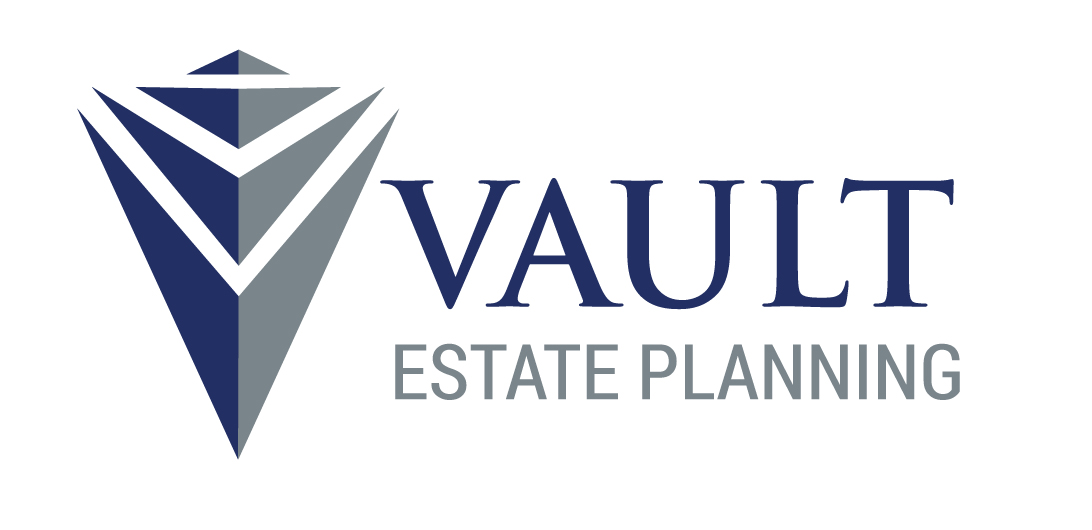Estate planning is a crucial aspect of personal financial management, yet it is often overlooked or misunderstood. Many people believe estate planning is only for the wealthy or the elderly, but the truth is that it is essential for everyone, regardless of age or financial status. This comprehensive guide will help you understand what estate planning entails, its key components, and why it is so important.
What is Estate Planning?
Estate planning is the process of organizing and managing your assets during your lifetime and distributing them after your death. It involves creating legal documents that specify your wishes regarding the management and distribution of your estate, including your property, investments, and personal belongings. Estate planning also addresses other critical issues such as healthcare decisions and guardianship for minor children.
The primary goals of estate planning are to ensure that your assets are distributed according to your wishes, to minimize taxes and legal fees, and to provide for your loved ones in the event of your incapacity or death.
Key Components of Estate Planning
1. Last Will and Testament
A Last Will and Testament, commonly known as a will, is a legal document that outlines how your assets will be distributed after your death. It also allows you to name a guardian for your minor children and an executor to manage your estate. Without a will, your assets will be distributed according to your state’s intestacy laws, which may not align with your wishes.
2. Revocable Living Trust
A Revocable Living Trust is a legal entity that holds your assets during your lifetime and distributes them after your death according to your instructions. Unlike a will, a revocable living trust allows your assets to bypass the probate process, which can be time-consuming and costly. It also provides for the management of your assets in the event of your incapacity.
3. Power of Attorney
A Power of Attorney (POA) is a legal document that grants someone else the authority to make decisions on your behalf. There are different types of POAs, including:
- Financial Power of Attorney: Allows your designated agent to manage your financial affairs.
- Healthcare Power of Attorney: Allows your designated agent to make medical decisions on your behalf if you are unable to do so.
4. Advance Healthcare Directive
An Advance Healthcare Directive, also known as a living will, outlines your preferences for medical treatment if you become incapacitated and are unable to communicate your wishes. It can include instructions about life-sustaining treatments, pain management, and organ donation.
5. Guardianship
Guardianship planning involves naming a guardian for your minor children in the event of your death or incapacity. This ensures that your children are cared for by someone you trust and that their needs are met according to your wishes.
6. Beneficiary Designations
Beneficiary designations are a crucial part of estate planning. These are the individuals or entities you name to receive assets from accounts such as life insurance policies, retirement plans, and bank accounts. It is important to review and update your beneficiary designations regularly to ensure they align with your current wishes.
7. Pour Over Will
A Pour Over Will works in conjunction with a revocable living trust. It ensures that any assets not included in your trust at the time of your death are “poured over” into the trust and distributed according to its terms.
8. HIPAA Waiver
A HIPAA Waiver authorizes your healthcare providers to share your medical information with designated individuals, such as your healthcare power of attorney. This ensures that your designated agent has access to the information needed to make informed medical decisions on your behalf.
Why is Estate Planning Important?
1. Ensures Your Wishes Are Honored
One of the primary reasons for estate planning is to ensure that your wishes are carried out after your death. Without an estate plan, your assets will be distributed according to state laws, which may not reflect your desires. By creating a comprehensive estate plan, you can specify how your assets should be divided, who should care for your minor children, and who should make decisions on your behalf if you become incapacitated.
2. Protects Your Loved Ones
Estate planning helps protect your loved ones by providing for their financial needs and minimizing potential conflicts. For example, by naming a guardian for your minor children, you can ensure they are cared for by someone you trust. Additionally, a well-structured estate plan can help prevent disputes among family members over the distribution of your assets.
3. Minimizes Taxes and Legal Fees
A comprehensive estate plan can help minimize estate taxes and legal fees, preserving more of your assets for your beneficiaries. Tools such as revocable living trusts, gifting strategies, and charitable donations can help reduce your taxable estate and maximize the value of your assets.
4. Avoids Probate
Probate is the legal process of validating a will and distributing an estate’s assets. It can be time-consuming, costly, and public. By using tools such as revocable living trusts and beneficiary designations, you can help your estate avoid probate, ensuring a faster and more private distribution of your assets.
5. Provides for Incapacity
Estate planning is not just about what happens after your death; it also addresses what happens if you become incapacitated. By creating a power of attorney and an advance healthcare directive, you can ensure that your financial and medical decisions are made by someone you trust, according to your wishes.
6. Protects Your Privacy
Unlike wills, which become public records during the probate process, trusts and other estate planning tools can help keep your financial affairs private. This can protect your beneficiaries from unwanted attention and potential fraud.
7. Supports Charitable Causes
If you have philanthropic goals, estate planning allows you to support charitable organizations through bequests, charitable remainder trusts, or other planned giving strategies. This can create a lasting legacy and provide tax benefits for your estate.
How to Create an Estate Plan
1. Assess Your Assets
The first step in creating an estate plan is to assess your assets. Make a list of everything you own, including real estate, bank accounts, investments, retirement accounts, life insurance policies, and personal property. This will help you determine the value of your estate and identify the assets you want to include in your plan.
2. Identify Your Goals
Next, identify your estate planning goals. Consider what you want to achieve with your estate plan, such as providing for your family, minimizing taxes, avoiding probate, or supporting charitable causes. Clear goals will guide your decisions and help you create a plan that meets your needs.
3. Choose Your Beneficiaries
Decide who will receive your assets after your death. These individuals or entities are your beneficiaries. You may choose family members, friends, charitable organizations, or a combination of beneficiaries. Be sure to update your beneficiary designations on accounts such as life insurance policies and retirement plans to reflect your current wishes.
4. Select an Executor and Trustees
Choose an executor to manage your estate and ensure your wishes are carried out. If you create a trust, you will also need to select a trustee to manage the trust assets. These individuals should be trustworthy and capable of handling the responsibilities.
5. Draft Legal Documents
Work with an experienced estate planning attorney to draft the necessary legal documents, including a will, revocable living trust, power of attorney, advance healthcare directive, and any other documents required to meet your goals. An attorney can ensure that your documents comply with state laws and accurately reflect your wishes.
6. Fund Your Trust
If you create a revocable living trust, you will need to transfer ownership of your assets into the trust. This process, known as funding the trust, ensures that the assets are managed and distributed according to the trust’s terms. Be sure to update the titles and beneficiary designations on your accounts and property to reflect the trust as the owner.
7. Communicate Your Plan
Inform your family members, beneficiaries, and designated agents about your estate plan. This can help prevent misunderstandings and conflicts in the future. Provide copies of your key documents to your executor, trustee, and healthcare power of attorney.
8. Review and Update Regularly
Your estate planning needs may change over time due to life events such as marriage, divorce, the birth of a child, or significant changes in your financial situation. Review and update your estate plan regularly to ensure it continues to reflect your current wishes and goals.
Common Estate Planning Mistakes
1. Failing to Plan
One of the biggest mistakes is failing to create an estate plan. Without a plan, your assets will be distributed according to state laws, which may not align with your wishes. Creating an estate plan ensures that your desires are honored and your loved ones are protected.
2. Not Updating Your Plan
Life changes, and so should your estate plan. Failing to update your plan after significant life events can result in unintended consequences. Regularly review and update your estate plan to ensure it remains current and effective.
3. Overlooking Beneficiary Designations
Beneficiary designations on accounts such as life insurance policies, retirement plans, and bank accounts override your will. Make sure these designations are up-to-date and reflect your current wishes.
4. Ignoring Tax Implications
Estate taxes can significantly reduce the value of your estate. Work with an estate planning attorney and financial advisor to implement strategies that minimize taxes and maximize the value of your assets for your beneficiaries.
5. Choosing the Wrong Executor or Trustee
Selecting the right executor and trustee is critical to the success of your estate plan. Choose individuals who are trustworthy, capable, and willing to fulfill the responsibilities. Consider naming a professional trustee if you do not have a suitable candidate.
6. Not Communicating Your Wishes
Failing to communicate your estate plan to your family and beneficiaries can lead to misunderstandings and conflicts. Discuss your plan with your loved ones and provide copies of key documents to your designated agents.
Conclusion
Estate planning is a vital part of personal financial management that ensures your wishes are honored, your loved ones are protected, and your assets are distributed according to your desires. By understanding the basics of estate planning and working with an experienced attorney, you can create a comprehensive plan that meets your needs and provides peace of mind.
At Vault Estate Planning, we are committed to helping you navigate the complexities of estate planning and achieve your goals. Get started today and take the first step towards securing your legacy.


